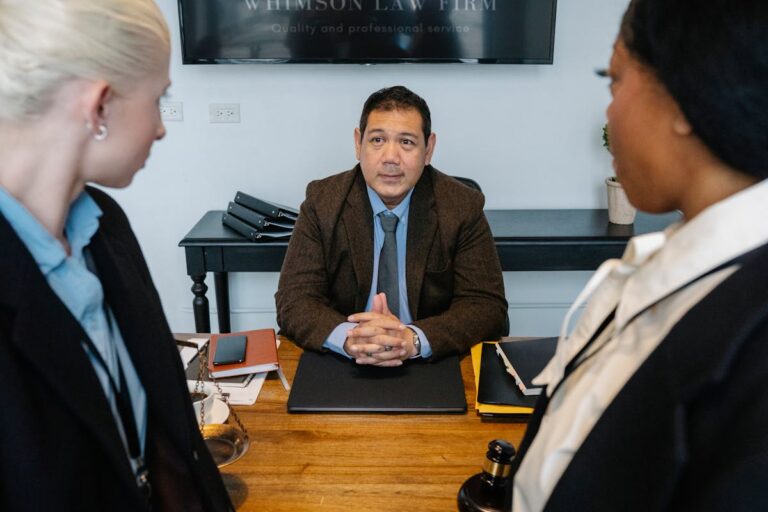Maneuvering the murky waters of a DWI charge can be a intimidating ordeal. The complexity of the legal process, coupled with the potential consequences, makes the assistance of a qualified lawyer invaluable. But when exactly should you enlist the help of a DWI attorney, and how critical is their role in the outcome of your case? The answers may not be as straightforward as you think, with many variables at play. This discussion aims to shed light on the importance of legal representation in such circumstances, potentially altering the trajectory of your case.
Understanding DWI Charges
Finding your way through the complex world of DWI charges can often feel like trying to find your way through a labyrinth in the dark. The first step towards clarity is understanding the DWI terminology and legal terminology involved. DWI, or Driving While Intoxicated, refers to the act of operating a vehicle while impaired by alcohol or other drugs, to a level that renders the driver incapable of operating the vehicle safely.
There are different levels of DWI charges, each carrying different penalties. These levels are often determined by factors such as the driver’s blood alcohol concentration (BAC), prior DWI convictions, and whether there was a minor in the vehicle at the time. The legal limit for BAC in all 50 US states is 0.08%. However, even a BAC below this level can lead to a DWI charge if the driver’s ability to operate the vehicle is impaired.
Understanding these terms and the gravity of a DWI charge is essential. It’s not just a traffic violation; it’s a serious criminal offense that can have profound implications on your life, from hefty fines to jail time. As a result, comprehending this complex legal terminology is key to maneuvering the DWI labyrinth.
The Role of a DWI Lawyer
Maneuvering through the legal maze of a DWI charge is an intimidating task best left to professionals. A DWI lawyer, skilled in the complexities of DWI law, serves as an essential ally during this challenging time. Their role is multifaceted, providing legal representation, advising on rights, and steering through the often murky waters of the legal system.
Legal representation is not a luxury; it is a necessity when facing DWI charges. A DWI attorney understands the legal framework surrounding your case, including the potential DWI penalties that could greatly impact your life. They are equipped to challenge the prosecution’s case, question the validity of evidence, and contest the procedures used during your arrest.
An experienced DWI lawyer can also negotiate plea deals, reducing severe DWI penalties to lesser charges. They provide a buffer between you and the court, ensuring that your rights are protected throughout the process. Fundamentally, the role of a DWI lawyer is to fight for the best possible outcome for you, utilizing their knowledge and expertise to turn an intimidating legal predicament into a manageable situation.
Evaluating Your Case
Having a competent DWI attorney by your side can greatly alter the trajectory of your case. The initial step entails a thorough appraisal of your case specifics. This process involves a meticulous examination of the circumstances surrounding your arrest, the conduct of the arresting officer, and other pertinent details.
An adept lawyer will methodically scrutinize every piece of evidence to identify any potential weaknesses in the prosecution’s case. Evidence evaluation includes evaluating the reliability of breathalyzer or other sobriety tests, the legality of the traffic stop, and the accuracy of the officer’s observations.
It’s essential to remember that every DWI case is unique, with its unique sets of facts and applicable laws. Consequently, the potential defenses that your attorney might utilize will depend heavily on the specific details of your case.

Potential Legal Consequences
Facing a DWI charge may result in severe legal ramifications that can profoundly impact your life. The potential penalties are far-reaching and can have long term effects that extend beyond just a simple fine or short jail term. They can disrupt your personal, professional, and social life, leaving an indelible mark on your reputation.
The potential penalties for a DWI charge can range from fines, probation, mandatory alcohol education programs, to imprisonment. Depending on the severity of the offense and your prior criminal record, you could be facing substantial fines, or even a prison sentence. In addition to these immediate penalties, a DWI conviction can also lead to a suspension or revocation of your driving privileges, making it difficult for you to fulfill your daily obligations.
The long term effects of a DWI charge go further than these immediate consequences. A conviction may affect future employment opportunities, as employers often conduct background checks. It can also greatly increase your insurance premiums, making driving an expensive proposition. In the worst scenarios, it can even lead to the loss of professional licenses.
Understanding these potential legal consequences emphasizes the importance of securing skilled legal counsel when facing a DWI charge.
The Court Process Explained
Given the potential legal consequences associated with a DWI charge, the court process becomes an integral aspect of your defense strategy. Recognizing and understanding court procedures as well as legal terminology can considerably influence the outcome of your case.
The court process begins with an arraignment, where you will be formally charged and asked to enter a plea. The discovery phase follows, with the prosecution sharing evidence they intend to use against you. It is vital here to have a knowledgeable attorney who can critically evaluate the strength of the evidence and challenge its validity if necessary.
Next comes the pre-trial motions and hearings, where legal arguments about admissibility of evidence and procedural issues are presented. Plea negotiations may also occur during this stage. If a reasonable agreement cannot be reached, a trial ensues.
The trial is a formal examination of evidence before a judge, and possibly a jury, to decide guilt in a case of criminal or civil proceedings. It involves opening statements, witness testimonies, cross-examinations, closing statements, and finally, the verdict.
Understanding these procedures and terminology is essential in maneuvering the legal labyrinth of a DWI charge, thereby highlighting the importance of competent legal representation.
Common DWI Defenses
In the domain of DWI charges, a strategic defense can be the difference between a conviction and acquittal. A common defense involves questioning the reliability and accuracy of the breathalyzer used in the arrest. These devices need regular calibration and precise operation to yield accurate results. An experienced attorney can scrutinize maintenance records and operating procedures to challenge breathalyzer accuracy, potentially undermining the prosecution’s case.
Another frequently employed defense targets the validity of field sobriety tests. These tests are inherently subjective, relying heavily on the officer’s interpretation and judgment. Factors like poor lighting, uneven surfaces, or the defendant’s physical condition can impact performance and subsequently, the test results. As a result, a skilled lawyer can argue that the results do not conclusively prove intoxication.
A less common but effective defense might be to challenge the initial traffic stop itself. If the officer lacked reasonable suspicion to make the stop, any evidence gathered subsequently may be ruled inadmissible.
Selecting the Right Lawyer
The task of finding the right lawyer for a DWI charge can feel intimidating, yet it is an essential step to guarantee the best possible outcome. Like any critical decision, this should involve careful consideration of the lawyer’s qualifications. A DWI lawyer should be familiar with the intricacies of the local legal system, have a solid understanding of DWI laws, and be experienced in representing similar cases.
Aside from technical expertise, excellent client communication is also a definitive factor. The lawyer should be able to explain the legal process in plain language, keeping you informed of your rights, potential defenses, and the possible outcomes of your case. The lawyer should also be responsive, answering your queries promptly and keeping you updated on the case progress.
The best DWI lawyer is not just technically proficient, but also an effective communicator, an empathetic listener, and a robust advocate. Remember, your lawyer is your ally in the legal battle. Hence, choosing the right one can greatly impact the course of your case, potentially saving you from harsh penalties and helping restore your reputation.
Frequently Asked Questions
Can a DWI Charge Affect My Employment Opportunities?
Yes, a DWI charge can indeed impact your employment opportunities. Employers often conduct background checks, and such charges can raise concerns. The employment implications are serious, potentially limiting your access to certain jobs or promotions.
How Can a DWI Conviction Impact My Insurance Rates?
A DWI conviction can considerably impact your insurance rates. Insurers conduct risk assessments, and a DWI increases perceived risk, leading to a substantial rise in your insurance premium, often lasting several years post-conviction.
Can I Be Charged With a DWI if I Am Under the Legal Drinking Age?
Yes, individuals under the legal drinking age can be charged with a DWI. Underage drinking carries serious legal consequences, including DWI charges, which can impact future opportunities and result in severe penalties. Legal counsel is recommended.
How Does a DWI Charge Affect My Driving Record?
A DWI charge considerably impacts your driving record, often resulting in suspension or revocation of driving privileges. The charge also carries legal penalties which can include fines, mandatory counseling, or even incarceration.
Are There Any Special Programs for First-Time DWI Offenders?
Yes, many jurisdictions offer special programs for first-time DWI offenders, such as diversion programs and rehabilitation options. These are designed to educate offenders, prevent recidivism, and contribute to overall public safety.






